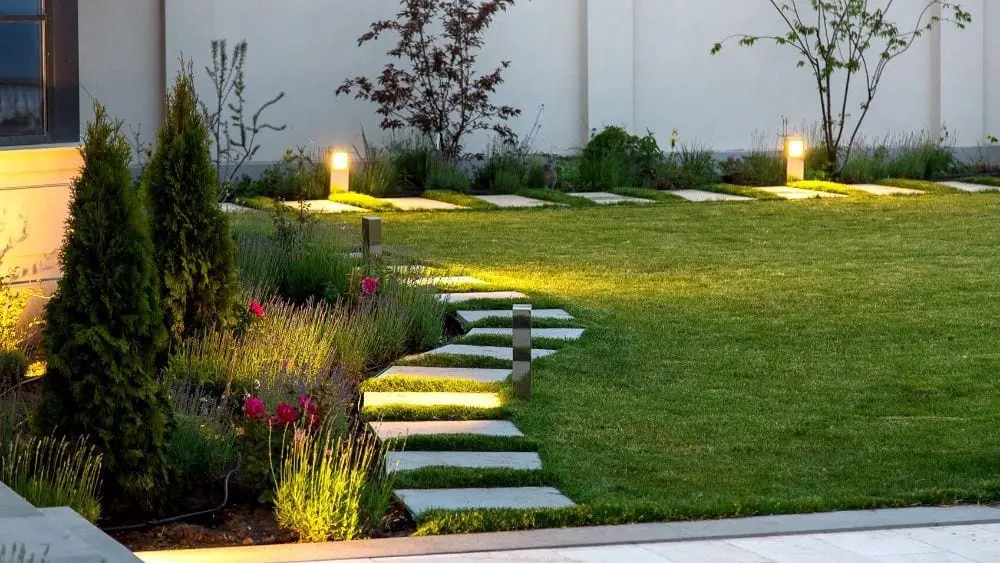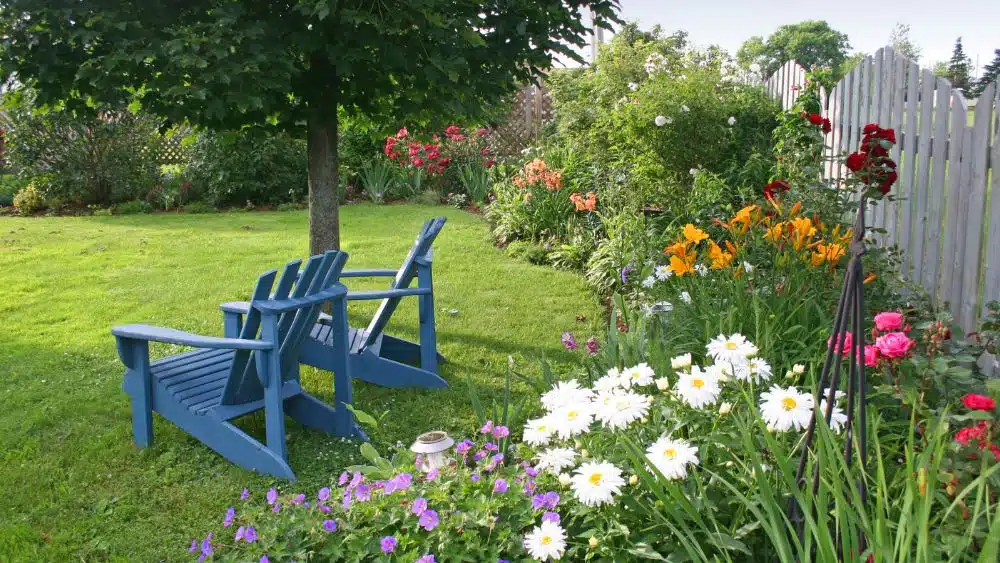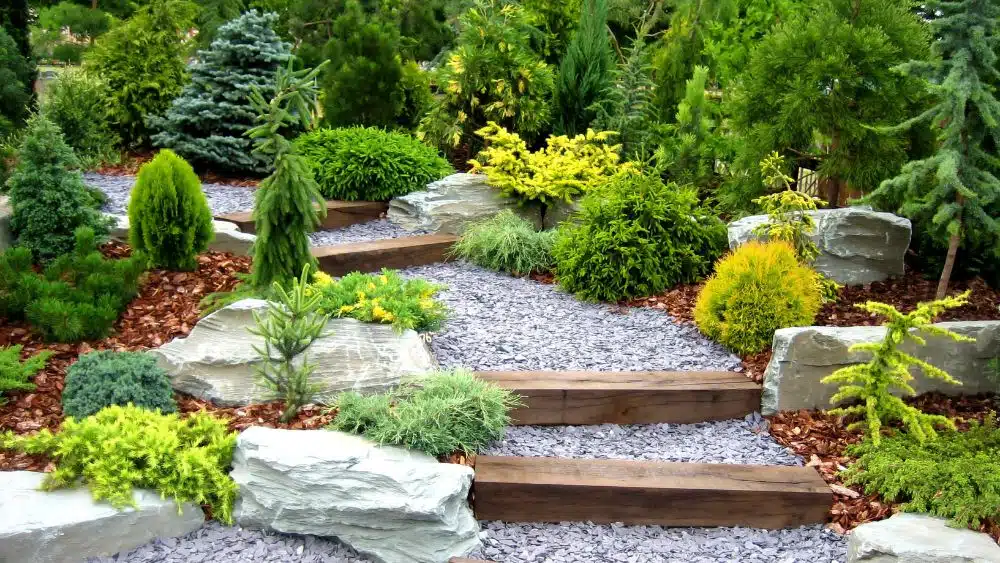Similar to consulting with designers for the interior space of a new home, homebuyers may seek guidance from landscape artists and professional garden designers when planning their yard space. While those may sound interchangeable, there are differences between gardening and landscaping (and what the respective professionals have to offer).
What’s the difference between landscaping and gardening?
The rule of (green) thumb is that gardening is about living things and landscaping isn’t. Kind of. Gardening is specific to plants and maintaining plant life in garden spaces. Landscaping involves the entire outdoor scheme and yard layout. Landscaping professionals often design the space for another contractor to build, while gardeners have ongoing duties and responsibilities to care for plants throughout each season.
Landscaping

The landscaping design professional oversees big-picture spatial considerations, such as excavation or adding walking paths and rock features to the yard. They consider things like irrigation and elevation, then adjust spatial planning to meet the unique land considerations.
What exactly is landscaping?
Landscaping includes the planning, design, and maintenance (though often not as much as gardening) of an outdoor space. Projects can range in size and needs, like how a waterpark landscaping design is going to have different needs than a residential backyard. Landscaping often includes a combination of both non-living and botanical elements, like the installation of a serene pond with water lilies or a trellis of flowers that creep up the side of the house.
What Landscaping is Not
Landscaping offers a perspective on the layout of the yard and how each element interfaces and balances each other out to create a unique aesthetic, but it doesn’t take a deep dive into plants and their ongoing needs.
Landscaping Professional Accreditation
To become a landscaping architect, an individual must have a degree in landscape architecture and have obtained a license through a national examination. There is typically some amount of experiential learning or mentorship required to earn the degree and accreditation. Landscaping designers, on the other hand, often do not require a formal education or licensure exam, which means they can typically only take on smaller projects for residential homes and communities. Both landscaping architects and landscaping designers work with contractors who oversee the implementation of the project design.
Gardening

The gardening professional brings a fresh new perspective to the green spaces of a home. After looking at two-dimensional blueprints and black-and-white sketches of house designs, it’s refreshing for new homeowners to connect with a gardener who is an expert on native plants and how to grow them. Gardeners are often involved in the continual growth of the garden, ensuring that plants maintain good health and are changed out appropriately each season.
What gardening is…
Gardeners are responsible for the sowing and planting of the botanical life in a yard. Their expertise is in the ongoing maintenance of plant life. They provide significant insight and knowledge as to which plants are native to your area and how to best care for them.
…and what it is not
Professional gardeners often do not landscape. While some gardeners take on long-term projects, it’s not a guarantee. Clear this up early on in the meetings to prevent miscommunication with your building team.
Gardening Professional Accreditation
The process to become a professional gardener often includes a higher education degree in botany or horticulture. Other gardeners might pursue a certificate as a master gardener, a program that further certifies the individual as a gardening expert through experience. The practice requires a lot of specific knowledge, including natural processes such as soil ecology, plant physiology, water drainage, climate impact, and invasive pests.
So, Should You Hire a Landscaper or Gardener?

Luckily, this question isn’t too hard when homeowners consider their space. For designing a spatial layout or the addition of non-plant features like a waterfall installation or small trail, a landscape designer can draw up detailed plans to fit your vision. For assistance with the planning, sowing, planting, growing, maintaining, and harvesting of your plants, a master gardener will be able to best meet those needs. And, if your project includes living and non-living elements, talk to both! Soon enough you’ll be enjoying the summer breeze in your perfect outdoor oasis.

Melanie Theriault is a writer, counselor, and lifelong learner. She holds a B.A. in Sociology from Southwestern University, where she discovered her passion for fostering human connection through storytelling.
 Best Modular Home Builders in Arizona
Best Modular Home Builders in Arizona